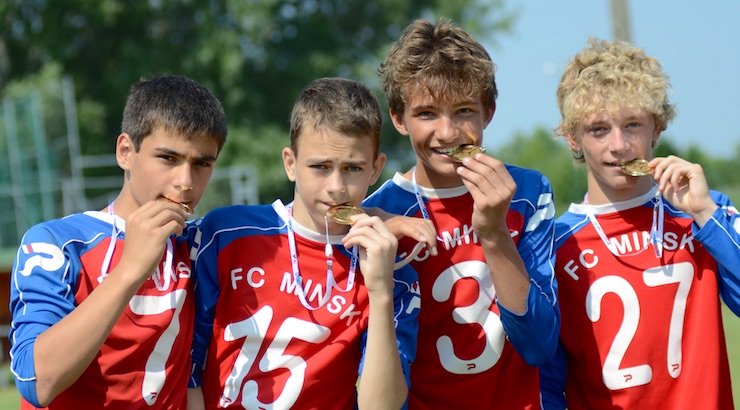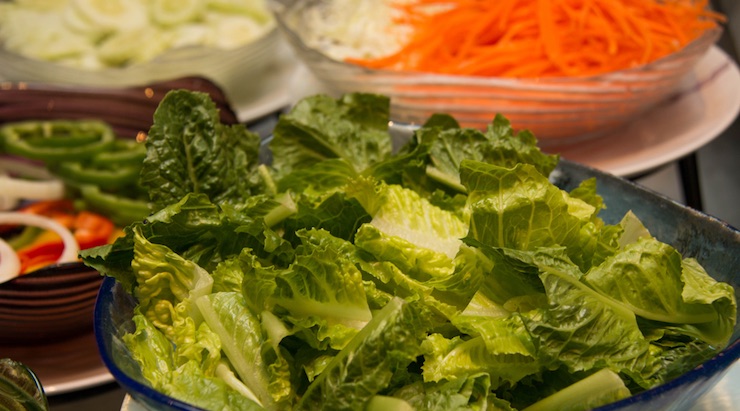Tips for Tournaments and Traveling Soccer Players
The latest sports nutrition news from Nancy Clark, MS RD CSSD.
Soccer players commonly ask me “What should I eat before a tournament?” — Here are some suggestions to help youth soccer players perform at their peak when competition in a youth soccer tournament — and, of course, good luck!
Eating for tournaments or “the big game”
If you are about to embark on some serious back-to-back soccer games, training, or even important try-outs, you want to be sure your muscles are fully fueled.
This entails a type of “carbohydrate loading,” similar to what endurance athletes practice before big events.
Here are some tips on getting the job done.
Eating a high-carbohydrate diet means more than just stuffing yourself with pasta; a good sports diet ensures adequate “muscle and mind” fuel, along with the right balance of protein and fat.
Daily training diet
Eat a carbohydrate-based sports diet every day, with grains as as the foundation for every meal to develop a tried-and-true training diet that will support your soccer aspirations.
The week before the tournament:
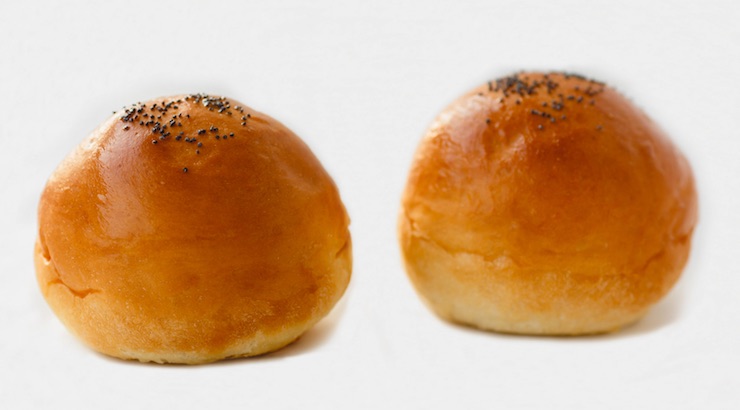
Be sure that you are carbo-loading, not fat-loading. That is, instead of having one roll with butter for 200 calories, have two plain rolls for 200 calories. Enjoy pasta with tomato sauce rather than oily or cheesy toppings. While you need not eat a fat-free diet, you do not want to fill up on fatty, greasy foods that fill the stomach but leave the muscles poorly fueled with carbohdyrates (muscle glycogen).
- Continue to eat a small serving of low-fat proteins as the accompaniment to the meal — not the main focus.
The Day Before the Tournament
Instead of relying upon a huge pasta dinner the night before the tournament, you might want to enjoy a substantial carb-based meal at breakfast or lunch. This earlier meal allows plenty of time for the food to move through your system. Or, depending on game times, eat your carb-fest at both times!
- Drink extra water, juices, and even carbohydrate-rich sports drinks, if desired.
- Expect to gain possibly about two to four pounds of water weight. For every ounce of carbohydrate stored in your body, you store about three ounces of water.

Game Morning
- Eat a tried-and-true breakfast that will settle well.
- Drink plenty of fluids. Take your preferred beverage with you so you’ll have it available at the game.
- If you are a coffee, tea or cocoa drinker, enjoy your standard morning beverage.
During the Tournament
- Prevent dehydration by drinking on a schedule, as much as possible.
- Maintain a normal blood sugar level, by consuming about 200 to 300 calories of carbs during the game, especially on multi-game days.
Eating on the road
Participating in a tournament that is far from home provides a fun opportunity to travel and compete. But all too often when traveling, you can get nutritionally sidetracked by the confusion and excitement of being on the road.
Traveling is fun but filled with food temptations. Do your best to stick to tried-and-true foods that you know will settle well and not upset your digestive system. Save the less sports-oriented food until after the games are over.
You’ll want to pre-plan how you are going to best fuel yourself. Some players and their families or teammates travel with a cooler packed with abundant tried-and-true meals and snacks. Others confront the nutritional challenges of finding familiar sports foods at local restaurants and stores. Whatever you do, remember that in a tournament situation, every meal is a pre-game meal.
To help you better accommodate a healthful high-carbohydrate-based sports diet into your traveling routine, here are a few tips.
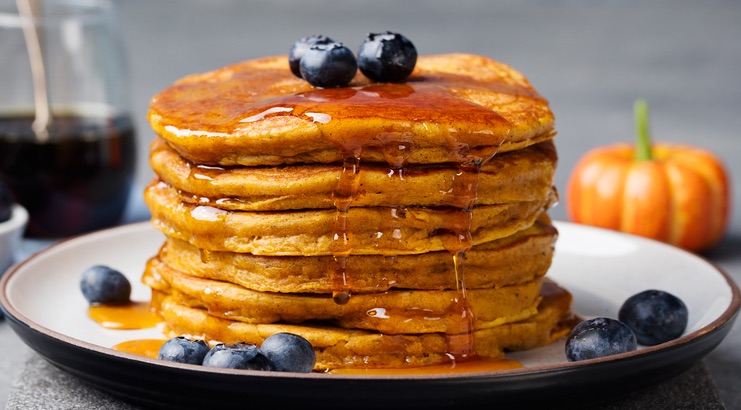
Breakfast:
- At a restaurant, order pancakes, French toast, whole-wheat toast, or English, bran, or corn muffins. Add jelly, jam, or maple syrup for extra carbohydrates, but limit the butter or request that it be served on the side so that you can better control the amount of fat in your meal. Add a little protein to the muffin or toast meal, such as eggs (or egg whites) or a glass of lowfat or skim milk.
- Order a large orange juice or tomato juice. This can help compensate for a potential lack of fruits or veggies in the other meals.
* Try to stay in a hotel that offers a free breakfast. If it doesn’t, pre-arrange a group deal. If the game is very early, request a packed-to-go breakfast (bagel, banana, yogurt) or ask if the hotel can accommodate a group request for an earlier meal.
- Easier yet, for a hotel stay, you might want to save time and money by packing your own cereal, raisins, and spoon. Either bring powdered milk or buy a half-pint of lowfat milk at a local convenience store. A water glass or milk carton can double as a cereal bowl.
Lunch:
Find a deli or restaurant that offers wholesome breads. Request a sandwich that emphasizes the bread, rather than the filling — preferably lean beef, turkey, ham, or chicken.
Go easy on the mayonnaise, and instead, add moistness with mustard or ketchup, sliced tomatoes, and lettuce. Add more carbohydrates with juice, fruit, fig bars, or yogurt for dessert.
At fast-food restaurants, the burgers, fried fish, special sandwiches, and French fries have a very high fat content. You’ll get more carbohydrates by sticking to the spaghetti, baked potatoes, bean chili, or thick-crust pizza selections.
Request thick-crust pizza — maybe with veggie toppings rather than thin-crust pizza with pepperoni or sausage. If thin crust, than order without the meats, and add a side salad if desired.
At a salad bar, generously pile on the chickpeas, three-bean salad, beets, and fat-free croutons. Take plenty of bread. But don’t fat-load on large amounts of butter, salad dressings, and mayonnaise-smothered pasta and potato salads.
- Baked potatoes are a super choice if you request them plain rather than drenched with butter, lots of sour cream, and cheese toppings. For moistness, try mashing the potato with milk and then add a little bit of butter, if desired. A small amount of sour cream and salt to taste is not a bad alternative.
- Hearty soups (such as split pea, minestrone, lentil, vegetable, or noodle) accompanied by crackers, bread, a plain bagel, or an English muffin provide a satisfying, carbohydrate-rich, low-fat meal.
- Both juices and soft drinks are rich in carbohydrates. Juices, however, are nutritionally preferable for vitamin C, potassium, and wholesome goodness.
- Save the typical fast food, candy and soda for after the games, if ever.

Dinner:
If possible, check out the restaurant beforehand to make sure that it offers wholesome carbohydrates (pasta, baked potatoes, rice, steamed vegetables, salad bar, homemade breads, fruit, juice), broiled foods, and lowfat options. Inquire how dishes are made. Request foods that are not fried, and ask entrees to be prepared with minimal fat (so also avoid heavy sauces). Inquire how dishes are made. Request foods that are not fried, and ask entrees to be prepared with minimal fat (so also avoid heavy sauces).
Eat the breads and rolls either plain or with jelly, or only with a little butter. Replace the butter calories with high-carbohydrate choices: another slice of bread, a second potato, soup and crackers, juice, sherbet, or frozen yogurt.
- When ordering salads, always request the dressing be served on the side. Otherwise, you may get as many as 400 calories of oil or mayonnaise—fatty foods that fill your stomach but leave your muscles unfueled.
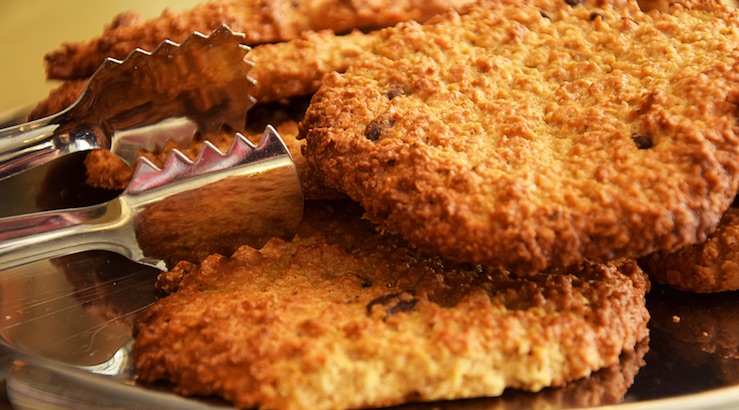
Snacks and munchies:
- Pack your own snacks. Some suggestions include: whole-grain bagels, muffins, rolls, crackers, pretzels, fig bars, energy bars, granola bars, oatmeal-raisin cookies, graham crackers, oranges, raisins, dried or fresh fruit, and juice boxes.
- Buy wholesome snacks at a convenience store: small packets of trail mix, bananas, dried fruit, yogurt, V-8 juice or fruit juice, bagel, hot pretzel, slice of thick-crust pizza, small sandwich, or cup of soup.
 Sports nutritionist Nancy Clark MS RD CSSD has a private practice in the Boston-area (Newton; 617-795-1875). She teaches both fitness exercisers and competitive athletes how to eat to perform well. Her best-selling Sports Nutrition Guidebook and Food Guide for Soccer, as well as her teaching materials, are available at nancyclarkrd.com. For online and live workshops, visit NutritionSportsExerciseCEUs.com.
Sports nutritionist Nancy Clark MS RD CSSD has a private practice in the Boston-area (Newton; 617-795-1875). She teaches both fitness exercisers and competitive athletes how to eat to perform well. Her best-selling Sports Nutrition Guidebook and Food Guide for Soccer, as well as her teaching materials, are available at nancyclarkrd.com. For online and live workshops, visit NutritionSportsExerciseCEUs.com.
Reference: Thomas D et al. Effect of dietary adherence on the body weight plateau: a mathematical model incorporating intermittent compliance with energy intake prescription Am J Clin Nutr. 2014 Sep;100(3):787-95
Main Top Photo Credit: muzzy / Shutterstock.com

